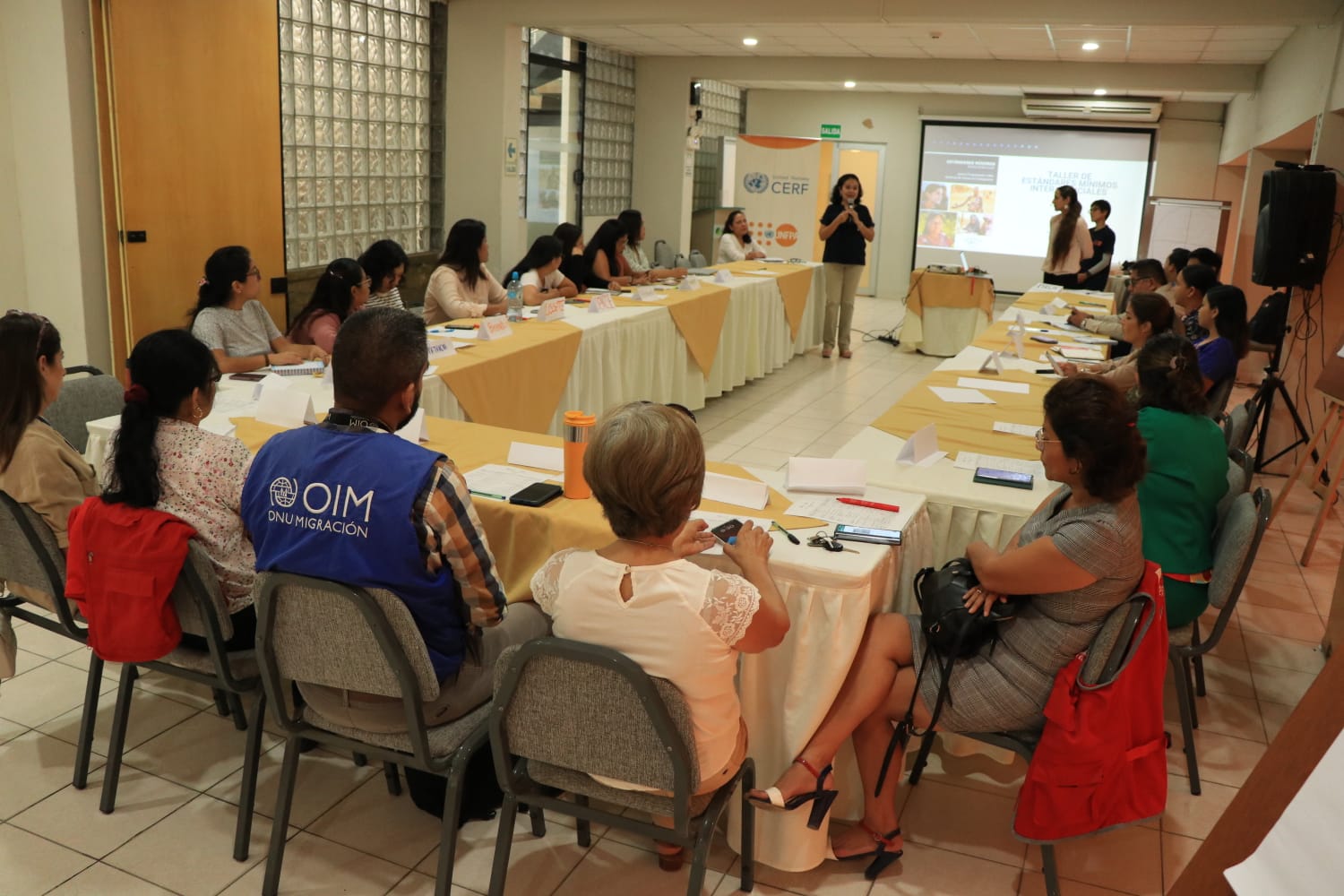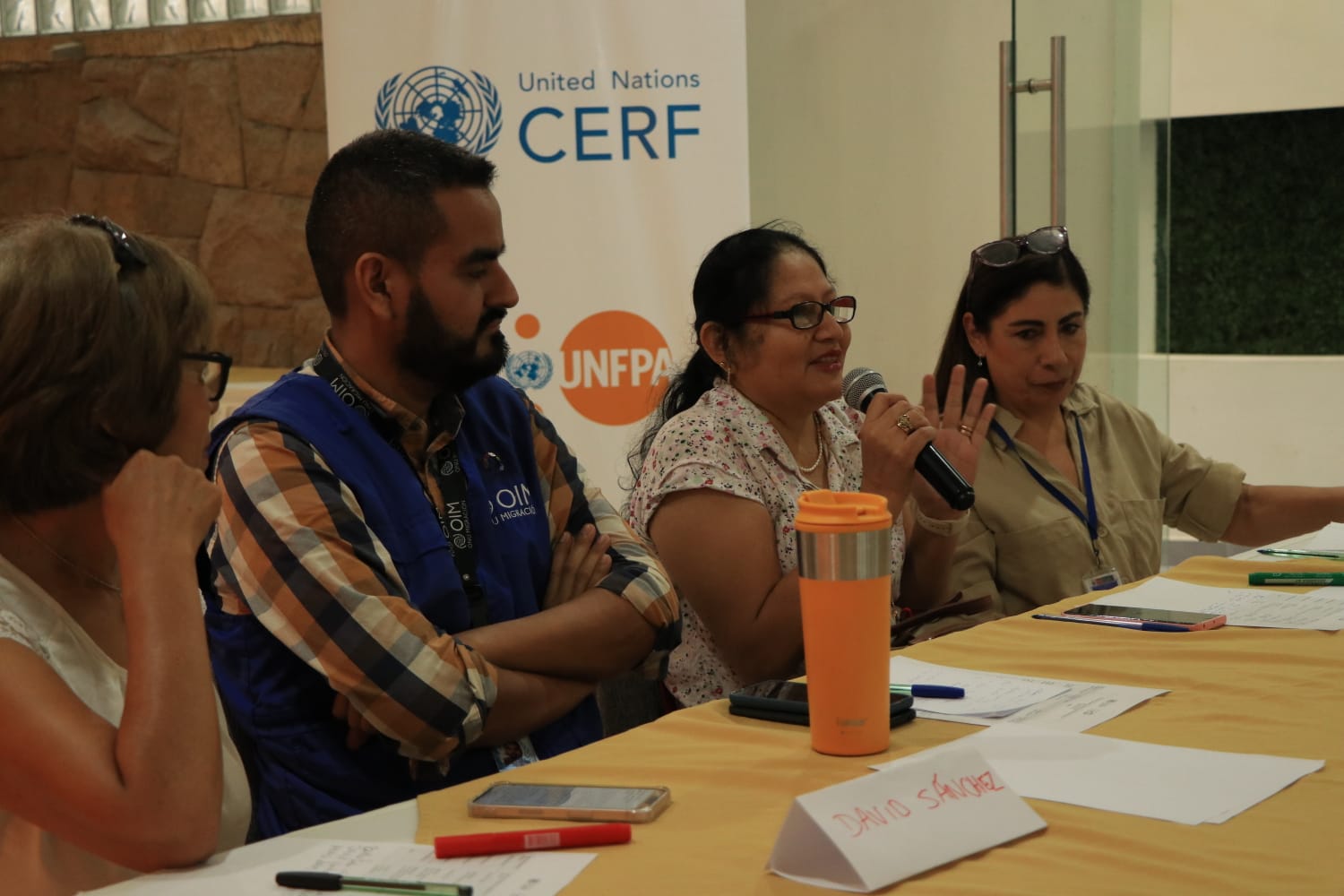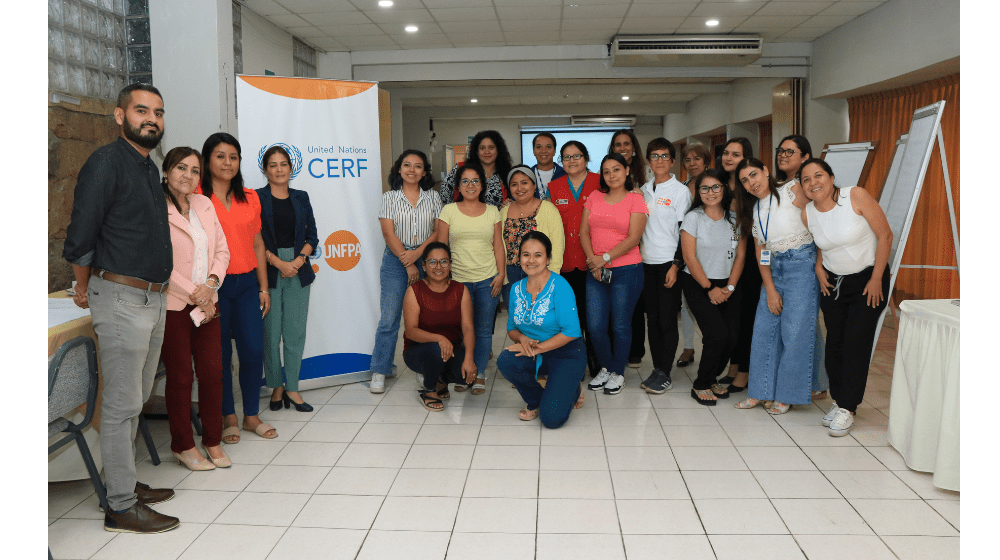Piura. - The emergency caused by the floods following the Yaku cyclone and El Niño Costero in northern Peru (Tumbes, Piura, and Lambayeque) exacerbated the risks faced by women and adolescents. Gender-based violence manifested in forms such as domestic violence, sexual exploitation, child marriage, and denial of resources, affecting not only the survivor’s physical and psychosocial health but also their families and communities.
Given the urgent need to improve the accessibility and quality of services to address gender-based violence (GBV), it is essential that service providers are trained in the global technical guidelines of the humanitarian system for responding to gender-based violence in emergency situations.

In this context, as part of the project funded by CERF to respond to the climate crisis in the northern part of the country, the United Nations Population Fund (UNFPA) in Peru conducted training for local and regional government officials, healthcare personnel, protection services, and members of the Humanitarian Network in Piura. This session focused on the Inter-Agency Minimum Standards for the Prevention and Response to GBV in Emergency Situations, with the aim of enhancing understanding of GBV programming in humanitarian contexts and providing tools for designing and implementing ethical, high-quality services.
The workshop took place on July 13 and 14 and was attended by local and regional authorities from various partner institutions. It involved officials from the Regional Government of Piura, Diresa Piura, C.S. Santa Julia, Plan International, Prisma NGO, and IOM in the Piura Region.

The workshop was organized and conducted by the CERF - UNFPA team in Peru, in coordination with the team for GBV prevention and response in humanitarian contexts from the UNFPA Regional Office for Latin America and the Caribbean. Its goal was to strengthen the skills of healthcare, justice, and protection service operators in the programming of GBV response interventions in emergency contexts.
UNFPA's training contributes to the efforts to strengthen the comprehensive response to gender-based violence in crisis contexts, promoting a safer and more just environment for the affected individuals and communities as a whole.
For more information about the CERF Project to Save Lives and Leave No One Behind: https://peru.unfpa.org/es/salvando-vidas-peru-cerf
VIDEO:


